Transcript
Bob Shepherd:
Thank you for coming. And we’re very lucky to have, Ambassador [Otgonbayar] Yondon, who’s kindly agreed to come and speak [on] a topic of much importance to the Republic of Mongolia. I’m going to introduce the ambassador and just give you a bit about his background because he has led a very impressive life. He became ambassador to the United States on March 28th of this year [2018] when he presented his credentials to president Trump. He holds Bachelor’s, Master’s degrees, and also a PhD. His PhD is in international affairs, so he’s right at home at the Elliott School. He’s served – he did his service – in the Mongolian Army in his youth and joined the Ministry of Foreign Affairs in 1989 as First Secretary in the Department of Asia. In 1991, he was delegated to India as Second Secretary and the Mongolian Embassy in New Delhi.
Bob Shepherd:
He then later served from 1996 until 1987 in Mongolia’s Mission to the United Nations. In 1997 Ambassador Yondon left government to become the CEO of a hotel group in Mongolia, and then later in 2000 returned to the Ministry of Foreign Affairs. And in 2004, he left the Foreign Ministry again to become Secretary General of the Mongolian People’s Revolutionary Party, which now is the Mongolian People’s Party. And finally in 2006, I’m sorry, in 2008, he became Minister of Education, Culture and Science. After this, he was elected to parliament in 2012 from the province of Bulgan, and in 2016 became Vice Minister of Education, Culture, Science and Sports, a post he held until being appointed to Washington D.C. And then I think the most interesting – I found the most interesting – fact about Ambassador Yondon is he’s very prolific on Twitter and has 138,000 followers. So this is an amazing number. And without further ado, I’m going to let the ambassador speak.
Ambassador Otgonbayar Yondon:
Thank you. Good afternoon everybody and thank you, Professor Shepherd, for the kind introduction of me. First of all, I would like to express my deep gratitude to you and to the Sigur Center for Asian Studies for this excellent opportunity to speak at [The] George Washington University. I should note here that I’m here not as ambassador, but rather as a scholar who holds a PhD degree. My thesis was about security of small states. So as a scholar I would like to share my views about contemporary developments in and around my country and how we Mongolians see them. I was asked today to speak on the theme [of] Mongolia between Russia and China. I hope you will ask me to speak on these things. I have done it in the hope that the USA is the best nation to understand Mongolia’s situation, as [the] USA is also sandwiched between Mexico and Canada.
Ambassador Otgonbayar Yondon:
But if we […] well, there were times when [the] United States of America was sandwiched between [the] British empire and [the] Spanish crown. And I’m sure it was not the best time for the United States, that time. So I thought to start my talk from – I think – Mongolia over Russia and China and gradually talk about Mongolia between Russia and China because many trends today [that] we observe had their beginnings in those times. […] I will not burden you with the excessive details of [the] Mongol conquest of Eurasia or [the] conquests of Ghenghis Khan. It is well known and pictured, often in bloodthirsty tones as compared to the reality [of] what had happened that time. Jack Weatherford, author of the famous New York times bestseller Ghenghis Khan and the Making of the Modern World.
Ambassador Otgonbayar Yondon:
He described the Mongol conquest as wonderful […] full of people conquering huge part[s] of the known world for better understanding for Americans. I would say that the territory of [the] Mongolian empire was equal to […] Canada, USA, Mexico, and Brazil together. So it was conquered by around 120,000 cavalry men. These tremors of these cavalry were felt for some period from the coastlines of Korea to the Gates of Yan’an. From [the] frozen taiga of Siberia to the hot plains of India. These […] conquests lay the foundations of many modern processes and many modern nations that shaped today’s world. But what we are going to talk [about] today is not these conquests, but rather what these conquests brought afterwards to today’s Eurasia, particularly to Russia and China. [The] Mongols first conquered what is today called China. Nomads were in contact with China for at least 2,000 years or maybe more. [The] Huns were fighting with [the] Chinese for centuries.
Ambassador Otgonbayar Yondon:
That’s when [the] Great [Wall of] China [was] created. Now various dynasties were created by nomads in China. Huns, […], Mongols, […] – at least six, seven of them. By the way, [the] Mongolians [were] the only one which [was not] assimilated in China after [the] creation of [the] dynasty. But what these nomads were contacting was not exactly China. As you can see from this map of Chinese dynasties, it was not really [for a] long time when China was united in one place. We can see [the] Qin dynasty for around 20 years, the Han dynasty for 200 years, [and the] Tang dynasty for 300 years, but all these five, six hundred years compared to 3,000 to 5,000 years of Chinese history, is not compelling. Really, it’s a period too short to create a notion of [a] unified nation. And then additionally, as you can see from these maps, one dynasty was followed by […] dynasties each time: Zhou was followed by [the] Spring and Autumn Period, the Warring States Period and then [the] Qin and Han [dynasties] was followed by [the] Three Kingdoms [Period].
Ambassador Otgonbayar Yondon:
Qin and Tang [were] followed by [the] Five [Dynasties] and [the] Ten Kingdoms Period. Then it was followed by three centuries of division between Song, Yuan, Qing, […], and all those dynasties. Why [am I] saying this[?] Because in [the] 13th century [when] Mongolians encountered China, it was divided into four kingdoms. […] in the West, Qing in the North, Song in the South, and Dali Southwest. So perhaps [the] notion of belonging to China was upset [at] that time. Perhaps they were referring [to] themselves as subject[s] of Qing, subject[s] of […], subjects of Song. And you know that Northern and Southern Chinese were greatly under one umbrella – even today […]. But maybe because of [the] Mongol conquest, and then followed by [the] Ming dynasty, which united China for a few hundred years, and then followed by two centuries of [the] Manchu Qing Dynasty, that the notion of belonging to a state has been created in China. [The] Mongol world, which was created as a result of brutal conquest.
Ambassador Otgonbayar Yondon:
You see, the conquests brought a relative peace with China. Internal wars have ceased, population growth was steady. And what is most important? Who knew […] to China because, Northern [and] Western, trade routes were open from China [to] the Mediterranean Sea. You know, [the] Arab traveler Ibn Battuta and [the] Italian author of [the] most famous travel guide of that time, Francesco Pegolotti, both referred to this area as the safest area for trade caravans to [travel through]. To go from […] to Beijing, Pegolotti wrote, even if a single woman […] traveled alone from […] to Beijing, nothing would happen to her, so secure [were] the trade routes. Taxes were somewhere from three to five percent of total costs of the goods, which is quite low as compared, for example, to the port of Alexandria in Egypt at the time, [where they were] maybe 20%[.]
Ambassador Otgonbayar Yondon:
So obviously, trade was flourishing along these roads and of course, understandably, [the] exchange of ideas, technology, [and] goods was quite active at that time. If you see trade guides of [the] Chinese part of Guangzhou before [the] Mongol conquest and after [the] Mongol conquest, you will see what difference did it make, because before [the] Mongol conquest, these guides had all different sorts of unprecise or simply untrue information, because no Chinese [went], for example, to Arabia. But after [the] Mongol conquest, everybody learned that Mecca was not [a] holiday place for [the] world[‘s] Buddhists, for example, or Arab women were not reproduced by exposing themselves, neck to the foot, to sell wheat. Taxes were low, so [the] economy was flourishing. I don’t think that Mongolians were […]; they were simply lesser in number for the aristocracy to […]. So China experienced [for the] first time hunger for land due to a significant increase of [the] population under [the] Mongol empire, and at the end of the Yuan Dynasty, Mongol hands had to get themselves engaged in building huge irrigation systems in Central and Northern China.
Ambassador Otgonbayar Yondon:
So what was the result of Mongol rule in China? As I said, the notion of China was [at first] quite strong, because all the nationalities from South to North, felt themselves as belonging to one [realm]. Second, [there grew a] very strong sense of nationalism because China was under nomads, and they [were] feeling a need to fight foreign oppressors. So the sense of nationalism was strong, wider trade ties with [the] Arab world [and from] the Arab world to the West, and a single, central strong governance. If you’re […] in China, all governments will find Chinese or nomad, non-Khan dynasties [numbered] 13, but China was divided. So China had many centers of development before [the] Mongol era, but after [the] Mongol era, it was Beijing that [became] the center of the politics in China, as it is. Same story goes for Russia. [points to image] Oh, that’s the routes of Ibn Battuta.
Ambassador Otgonbayar Yondon:
And that’s when [the] Mongol dynasty was thrown out of China. [points to image] That’s the map of Mongolia and [the] Ming Dynasty [in] 1582. Same thing goes for Russia. [The] first Mongol armies, well – I wouldn’t say armies – two divisions encountered the Russian kings in 1227 at the Kalka [River] near [the] Black Sea. That was [the] first reconnaissance mission and all twenty-one kings of [the] Russian principalities came forward to defend […] at that time. And at that battle, Russians were not united. So, as a result, they were defeated. All the kings were captured [and] decapitated. And 10 years later in 1237, when the Mongol armies again came to the Russian land, they found the same situation: Russia was divided into thirty or more principalities, as you can see from the map. And no principality was able to offer joint resistance against the invading Mongol armies.
Ambassador Otgonbayar Yondon:
Now, many scholars today say there were about 500,000 Mongolians. Believe me, they were not – they think the population of Mongolia was less than a million at that time. So even if you send every man, it won’t reach 500,000. And I remember a few years ago I was having a dispute with one of the Russian scholars who was saying that there were so many Mongols, and all this stuff. I told him: just imagine 500,000 cavalry men. Each horse is four meters long. And you need the […] to the next horse. So when you’re talking [about] 500,000 men, you are talking about a column. Okay, let’s [say] that [each] column has four horses in it. So you’re talking about [a] column [that is] 300 kilometers long. It’s just nonsense. And everybody has to have two extra horses. So you’re talking about a million horses. Can you imagine what million and half horses [were] doing in [the] Russian plains?
Ambassador Otgonbayar Yondon:
How do you feed them? You know, this [kind of] stuff. So Russia was occupied only because Russia was not united. And by the way, [the] Mongol armies – you will see from this – [the] Mongol armies did go only to those principalities who sent their forces 10 years ago at the Battle of Kalka, because Mongols held responsible those Russian Kings who were at that battle for killing their ambassadors. Because in Mongol nomad ethics, killing an ambassador is a sin that has to be punished. And if you see, they didn’t go, for example, to Novgorod, because Novgorod was not – did not participate in the Battle of Kalka, et cetera. And if you see the rounds, these are only cities. So you can see only four cities, and there were less than 10 cities which offered resistance.
Ambassador Otgonbayar Yondon:
So it was basically [that] Russians did not resist properly. [More recently], Russian governments stopped labeling that period as The Mongol Yoke or [The] Tatar Mongol Yoke. (Tatars is the name of one tribe in the Mongolian steppes.) Now, they’re officially calling it a period of dependence on the Khans of [the] Golden Horde. It might be correct in some sense because, well, [the] so-called Tatar Yoke actually asked Russian principalities to do only two things: to pay taxes and to provide military force[s] in case of conflict [in the] metropolis[es]. So Russian taxes, Mongolian taxes in the period was two to four percent. Believe me, it’s not very high because the so-called famous Battle of Kulikovo, which had taken place in 1318 – the reason for the battle was the Huns of [the] Golden Horde and [the] Moscow king would argue between themselves whether to pay two percent or four percent of taxes. That was the reason that I remember it[.]
Ambassador Otgonbayar Yondon:
One of the members of [the] Russian Duma, when they were discussing about [a] twelve percent VAT increase, he came to the Duma and said, “even Ghenghis Khan did not levy twelve percent.” So, probably which one is [the] “yoke” is, again, questionable. And even if you remember, okay, [the] supply of military forces, that’s, I think, normal practice in every nation. I don’t know. During World War II, millions of other nationalities fought on the side of [the] Soviet Union. They even have two thousand heroes of [the] Soviet Union. 2,000 Ukrainians, 300 Belorussians, 161 Tatars, 107 Jews, 97 Kazakhs, 90 Georgians, 90 Armenians, 8 […] Mongols, 8 […] Mongols and one […] Mongols. So nobody calls it the “Soviet Yoke.” Everybody calls it “the heroic struggle of the Soviet people against fascism,” right? [The] Mongol period also gave to the Russians [the] notion of belonging to Russia. For example, their famous – well, that’s what Russian school textbooks show in that period – believe me, […] is somebody who collects the taxes on behalf of them. Khans of the Golden Horde. But this is really a military picture, because […] existed only for twelve years in three hundred years of Mongolian domination. Taxes were collected by Russians themselves, especially by the king of Moscow principality.
Ambassador Otgonbayar Yondon:
Okay. Now, [the] famous battle of Kulikovo. Why [is it] important? I’ve been talking to many Russians. Russians are not [in agreement] that the Battle of Kulikovo end[ed] Mongol rule in Russia. That battle took place in 1380 and Mongol rule in Russia ended [in] 1480. So for 100 years more, Russians were still paying taxes to Mongolian khans. And I was asking why this battle is very important, why Russian historiography gave so much importance to this Battle of Kulikovo that they are creating a lot of myths around it. Actually the gentleman is Dmitri […], who is famous for this Battle. And when you read the Russian chronicle of 15th century referring to the Battle of Kulikovo, it’s called […] – you will understand why. And the chronicle says all soldiers have gone to Kulikovo, as Muscovites, Vladimians, […] and returned as Russians. So that’s the importance of this battle, because all these people from different Russian principalities, in this battle they felt themselves as belonging to one nation and defending one nation.
Ambassador Otgonbayar Yondon:
That’s the importance of this battle. And interestingly, or maybe it’s a historical joke, that [the] Tatar Khan Mamai – who invaded Russia and was beaten up in that battle – his granddaughter, Elena Glinskaya, mother of Ivan the Terrible, [the] Russian tsar – not every Russian tsar is bad, but all the Russians tsars had Mongol blood in them. And so they need [to] fight against Mongol oppressors or [the] Golden Horde to give Russians the sense of belonging to one entity: Russia. And also, Mongol rule made Moscow the strongest Russian principality, because most of [the Russian] kings were clever enough – at the beginning of the Mongol rule, they came up to the Golden Horde and said, “why do you send your […] to collect taxes? We’ll collect it for you.” And [the] Mongols said, okay, fine. Two percent, four percent. They were collecting it. Obviously they will keep some of it themselves because soon, Moscow becomes the richest Russian principality, defeats other contenders, and becomes the center of the united Russia.
Ambassador Otgonbayar Yondon:
And [the] second thing that [the] Mongols did in Russia which united Russia was [the] policy of religious tolerance that [the] Mongols had in Russia. [The] Russian Orthodox Church was relieved [of] all the taxes. So actually, religion in Russia thrived under [the] Mongols because under [the] Russians, they were supposed to pay taxes, but under [the] Mongols [they did not have to]. So the Church became the richest. And when the Battle of Kulikovo took place, it was rational to those […] who called people from different principalities to come to the Battle of Kulikovo, [because] it defends the Orthodox religion. So they came not because of Muslims, but because of interest [in] defend[ing] the religion. Actually the gentleman here is Alexander […] gave his […] to fight Mongols at the plain of Kulikovo. So that’s why, for Russia, religion is very important, because religion was the sense which united people from different principalities into one nation. So Mongol rule in Russia brought many systems of state and economic administration that was borrowed from China, from [the] Arab world, and introduced into Russia. And even Russians do not know that many of their terminology that they still use are from [the] Mongolian period. For example, таможенный. Yeah, that’s “customs.” That’s from the Mongolian word “tamga” [meaning] “stamp,” because when you cross the border, you need your papers stamped for […] treasury.
Ambassador Otgonbayar Yondon:
One thing, one interesting process that occurred at that time after World War Two, the movement for liberation from colonial rule that gained momentum in Asia and Africa. And [the] Soviet Union was quick to suggest their way of development, [a] non-capitalist way of development. That’s the theory that underdeveloped nations could build a social society [bypassing] capitalism. So […] obviously with [the] tremendous achievement[s] of [the] Soviet Union at that time – victory in World War Two, leadership in [the] space race, [the] economic miracle of [the] restoration of [the] post-war economy – the Soviet alternative looked not bad to many newly-created nations in Asia and Africa. And also, probably many of those nations were not eager to follow the way of their former metropolis because they knew that’s really not [a] good option, or at least they thought so. So […] but you have to show something, right?
Ambassador Otgonbayar Yondon:
That somewhere, it has been done. So, [the] Soviets choose Mongolia as [a] showpiece of [the] non-capitalist way of development in the 1960s. Soviet aid poured into this country, creating most of the agricultural industrial basis of the economy, created half of the city and […] to city. I must say that the living standards of Mongolians in the 60s were higher than of Japan or South Korea at that time. Leaders of Asian and African nation, started visiting the country to see how [the] non-capitalist way of development is taking place in that country. Mongolians immediately use this opportunity to please their diplomatic relations and obtain statements from visiting dignitaries [on] how nice and developed [their] country is, how [it is a] good independent nation [with] happy people. But [the] 1990s saw the disintegration of [the] Soviet Union and the whole dismantling of the socialist system. Mongolia chose a road to democracy and [a] market economy system in a remarkably short period.
Ambassador Otgonbayar Yondon:
Former Mongolian communists together with new […] position introduced corresponding change in the constitution, turning the country into [a] parliamentary democracy. By the way, [the] parliament that has adopted the – you see the moment of signing the first new democratic constitution – [the] parliament that adopted this constitution [was] constituted 92% [by] former communists. So it’s always a question: were they communists? Probably not; probably people saw the opportunity to get out of Soviet control and attained true independence by introducing [a] democratic system of governance and becoming part of the democratic family of the world. Some people ask me: was there a possibility, because there were two different options – either you go [the Mikhail] Gorbachev way, introducing political and economic reforms simultaneously, or you go the Deng Xiaoping way, introducing only economic reform and keeping politics under control – and whether there was a choice for Mongolia as a nation situated between these two nations?
Ambassador Otgonbayar Yondon:
I believe that there was no choice for Mongolia for simply [one] reason. We had virtually no relations with China in 1990, and most of the people wouldn’t know Deng Xiaoping’s reform or what were the ideas that Deng Xiaoping was propagating. Secondly, again, centuries of distrust of Mongolia in China, and probably no leadership in democratic conditions would propose [the] Chinese way of development. He would have been immediately accused of [having a] pro-Chinese stand. And also, the democratic changes implemented in Mongolia allowed Mongolians to shake away the Soviet influence and get, really, to true freedom. And last but not least, changes in [the] Soviet Union did happen in such a sweep and speed that Mongolia was facing virtually no time in making [a] choice. I believe that even Soviet leadership in Moscow were not having really enough opportunit[ies] to look [at] what was happening in Mongolia. They were not able to follow what was happening in Russia.
Ambassador Otgonbayar Yondon:
So Chinese and Mongolian relations were too distant at that time, [and] China could [poorly] influence on the processes taking place in Mongolia. I assume that Chinese leadership at the time was quietly supporting these processes in a sign of Mongolia’s movement away from [the] Soviet sphere of influence. And as I said, [the] Soviets were not really in position to influence Mongolian matters as they were too busy dealing with their own problems. At that time, [a] new notion appeared in Mongolian foreign policy: we called it [the] “Third Neighbor” policy. Maybe it’s not new, because in 1912 and 1913, Mongolians were desperately trying to contact British, French, Japanese, [and] German embassies in Saint Petersburg; [and] in 1918 and in 1919, they were trying also desperately to contact you the United States embassy in Beijing, seeking their support for the cause of independence. So in the 1990s, Mongolia has accepted [the] third neighbor policy as a balancing factor, for the relationship with [their] two great neighbors.
Ambassador Otgonbayar Yondon:
Often throughout Mongolian history, the fate of the country has been decided among the two, mostly without participation of [the] Mongols themselves. Take [the] 1913 Russian-Chinese declaration, which recognized autonomy for Mongolia: Mongolia opposed, but later in 1950, they had to agree to that. [In] 1924, [the] Soviet-Chinese agreement – Mongolia was recognized as part of China. At least […]. In fact, it remained independent. Only in 1945, [the] first time in our history, each Mongolian issue has been decided among the great powers: [Winston] Churchill, [Franklin D.] Roosevelt and [Joseph] Stalin in [the] Yalta Conference, and all three powers agreed to maintain status quo of Mongolia when the hostilities in [the] Far East would be ceased. Stalin had extremely difficult rounds of negotiation with [the] Chiang Kai-shek government to pursue China to agree to the independence of Mongolia. I mean in those situations, [the] Kuomintang government had to grudgingly agree to independence. Although Chinese communists recognized Mongolian independence immediately after [the] proclamation of [The] People’s Republic of China in 1949, Mao Zedong had made at least two attempts to convince [the] Soviets to give Mongolia to China.
Ambassador Otgonbayar Yondon:
[The] Soviets did not agree, perhaps because of their obsession of the idea of a buffer area. So this is the major reason why we declared [the] third neighbor policy as [an] important part of our foreign policy. In 1994, we adopted [a] foreign policy concept in which we said that Mongolian foreign policy would be multi-[…], so [that] Mongolia cannot rely only on two neighbors for its foreign policy. Actually, the notion of the “third neighbor” has been floated by U.S. Secretary of state, Jim Baker, who visited Mongolia in 1990, when he said his famous words: “we would like to be your third neighbor.” So Mongolia saved that idea. This idea, the concept of the third neighbor policy, ha[d] been formally articulated in the beginning of the 2000s. So now under the third neighbor [policy], Mongolians name like-minded democracies like [the] United States, Japan, [the] European Union, South Korea, and India. Just recently, [the] Mongolian prime minister also paid an official visit to the United States, [and in] a joint statement issued during the visit, both nations declared that the[ir] relations had been elevated to the level of [an] expanded comprehensive partnership.
Ambassador Otgonbayar Yondon:
So we have extremely good political relations, [and] people to people contacts. Just recently, we signed [the] Second Millennium Challenge compact agreement. Our troops served together in Iraq, and [are] now serving together in Afghanistan. But in our foreign policy, Mongolia goes beyond relations only with power centers of the world. We establish diplomatic relations with 197, if I’m not mistaken, 197 nations around the world. Exactly one nation more than the [entire] UN membership. Do you know the one, which is not UN? [The] Holy See. So another important direction of Mongolian foreign policy is the active standing in international organizations. We became [a] UN member in 1961. Now we are a member of 84 international organizations. Mongolian troops are serving in peacekeeping missions around the world.
Ambassador Otgonbayar Yondon:
That’s – if you see – the U.S. Vice President Henry Wallace’s visit to Mongolia in 1945. George W. Bush would not. Yeah. So Mongolian peacekeepers are serving in Iraq, Afghanistan, Sudan, Eritrea, and Nigeria. We contribute 1% of total peacekeeping operations’ human resources around the world. Way beyond the […] size. Population-wise, Mongolia counts 0.004% of the world population. So, having said all this, the relations with [our] two neighbors are of utmost importance to Mongolia. We declared the policy of equal distance to both of our neighbors and established friendly relations with both of them. We enjoy comprehensive partnership ties with both Russia and China. Now if you see these charts, you would understand why Russia is important. Mongolia’s role as a buffer zone between China and Russia is probably shaving away by the new developments, but Russia is still [an] important neighbor. As you can see, [it is a] strategic supplier of fuel and energy resources to Mongolia, and most of the important infrastructure projects between Russia and China inevitably involves Mongolia because of its geographical location. Russia [is] still important as [a] defense partner. And the Mongolian public still regards Russia as the best neighbor. Interestingly, at least from the poll opinions, which I saw for about, well at least [the] last 10 years, Russia, is named as the best foreign nation.
Ambassador Otgonbayar Yondon:
China is also important to Mongolia. Well, Mongolia was actually recognized as [an] independent nation, not by today’s China, but Kuomintang China [in] 1946. So now, those who are sitting in Beijing now can say that it was not our instinct, it was their instinct. So, as you can see, it’s very important: great partner, very important; investment partner, and most of our exports go to China, and most of our imports come from China. And more importantly, Mongolia constitutes [the] longest land border of China: 5,840 [miles or] something. And that’s very important because there were times when these borders were not peaceful. And it’s a very expensive thing – the border is extremely expensive. So I think that is important for China as well. Mongolia is an important source of energy in raw materials. Well, at least for northern China. And, as you can see, China is the largest trade and investment partner of Mongolia.
Ambassador Otgonbayar Yondon:
I’ve heard some interesting notions in my own time. Some scholars were claiming that [the] existence of Mongolian national entities, both in Russia and China – in Russia, we have three entities: [the] Buryat Republic, [the] Tuvan Republic, and […] Republic [were] of Mongolian origin. In China, we have [the] inner Mongolia administration. So some scholars are of the opinion that these are kind of a buffer for [the] security of Mongolian proper. I doubted in this [theory], because the Mongolians in these entities are already a minority in their own lands, with [the] exception of [the] Tuvan Republic, which is a considerably small republic in [the] Russian Federation. Some scholars claim that [a] sandwiched location between two superpowers itself is a security guarantee, because hardly any threat would reach Mongolia over those two nations. To some extent it might be true, but there are two things: first, we have to make sure that these two giants are not themselves turned into the source of instability, because we have seen those times often in Russia and in China, along the line of history.
Ambassador Otgonbayar Yondon:
And second is: well, in today’s world, security threats do not know national boundaries anymore. So in the recent developments, I must say a few things to ponder about recent developments and what are the new realities that we are facing at this moment. One thing is, in a very short span of time, in fact, in [the] span of one’s lifetime, China became a strong power economically. I think now it’s [the] second biggest economy in the world.
Ambassador Otgonbayar Yondon:
And, well, China has every right to claim world leadership, at least economy-wise. And with the growth of [the] economic […], [the] military is also growing, as you can see. And from the ascension to office by President Xi Jinping, China started taking [a] more assertive role in world and regional affairs. I don’t know whether it’s true or not – there is a legend that Deng Xiaoping, in his own time, told the Chinese leadership that China should show no ambition until it would be strong enough to withstand challenges [from the] world superpowers. Some say that the new Chinese leadership believes that the time has come for China to grow its influence worldwide; at least the Belt and Road Initiative of China is looking toward increasing its soft power in the regions surrounding China. So we see [a] more active China as compared to early China, when the leaders were rather busy with internal issues [over] the international ones.
Ambassador Otgonbayar Yondon:
The second, in my opinion, is an important process because of the, I would say, because maybe one of the costs, of Russia’s turn towards [the] East is Ukraine. Because of the […] in Ukraine in the Western sanctions, Russia is increasingly turning toward [the] East. So relations with China is moving very fast: cooperation and coordination on projects are going on, not only bilaterally through [the] Shanghai Cooperation Organization. So it’s a big question – I don’t know – whether Ukraine is important for [the] West or [the] creation of [a] Russia-Chinese block is important. Right now, when you are pushing from westwards, inevitably it’s going eastwards and [towards] much closer cooperation. So one would say that Russia is trying to revive lost influence in [the] post-Soviet space.
Ambassador Otgonbayar Yondon:
But interestingly, right now, they’re doing [it] in combination with China. That’s interesting. New groupings are taking place in the region, new initiatives are being flown: Eurasian economic community initiative by Russia, Belt and Road initiative by China, creation of Shanghai Cooperation Organization, [and the] Indo-Pacific strategy by Japan and United States. One thing which is very clear is that so far, no clear-cut division took place in the region. So what [does the] future hold for Mongolia in such circumstances? Won’t Russia and China become close allies who would decide the country’s fate between themselves without Mongolians as it happened before? Won’t Russia and China have similar relations [as the] US and Canada has today? And who will be Canada? Will Mongolia benefit or lose from this newly forged friendship between its two giant neighbors? Ultimately, there [are] no clear cut answers to these questions.
Ambassador Otgonbayar Yondon:
The idea of gaining and losing from friendship or hostility of its neighbors is usually based on the assumption of the zero sum game. But today, we observe [a] rather cooperative game in the region, than [a] zero sum game. But on the other hand, Mongolia today is not the Mongolia of the beginning of the 20th century. The country today is [a] full-fledged member of [the] United Nations for six decades, recognized by every nation around the world, and the world today is not the world [of] yesterday. Thanks to the development of [an] international legal system, no nation today can easily be overruled, however small the nation would be. So I believe that [the] challenge for today for Mongolia lies in its need for development, tackling poverty which encompasses one third of its population, [and] finding its right place in the regional mega projects of infrastructure or energy. Mongolia is geographically located at the crossroads of all mega projects and [is] a quite resource-rich country. So if Mongolia would succeed in managing those challenges, I think Mongolia would definitely gain from the game which is taking place in this part of the world. So let me finish my presentation with that and I’d be happy to answer your questions. Thank you.
Bob Shepherd:
We have a few minutes; if you need to go, that’s fine. But if you have some questions, please – we’re a small enough crowd that you can just stand up by yourself and pose your question.
Bob Shepherd:
Sir?
Speaker 2:
Oh, I’ll start. Robert […] with international investor. We did a report in your country about seven years ago. And even then, there was a concern about Chinese immigration into your country, and the number of Chinese that were that coming in. Is that still an issue? And I’d also ask: are you concerned about Chinese corruption of your political system in any way? Their money – you’ve pointed out they’re already your biggest trade partner. Is their money starting to influence Mongolia’s leadership?
Ambassador Otgonbayar Yondon:
Okay. Well, Mongolia has very strong policies on immigration. So, in that sense, Chinese immigration is not really an issue in my opinion. [It’s] a different thing when you’re talking about [the] public attitude toward that. Because I mean, one, we have been living together for 3,000 years. So when you live with somebody in one room for 3,000 years, you ought to have problems, right? And all these cycles developed along the course of those years. So if you are talking about that, yes, there is […]. But in reality, I don’t think that there is a significant of Chinese migrants and there will be in the future. As far as corruption issues are concerned, believe me, we are not – we [do] not [have] less than [the] Chinese. We have our own corrupt officials. We are fighting with them, let alone Chinese money. So I don’t think that any Chinese money is influencing Mongolian officials. If we are going to kill ourselves, then it’s we who would kill ourselves, in that sense.
Bob Shepherd:
Other questions…? Sir.
Speaker 1:
How strong are the ties between Mongolians and […] in inner Mongolia?
Ambassador Otgonbayar Yondon:
Surprisingly, there is a tie, because given the fact as I mentioned earlier [that] Manchus were regarding inner Mongolians differently than outer Mongolians, so they will not also supportive of inter-Mongolian ties – so for the course of 300 years or even 400 years, these ties remained. So at least most of our people-to-people contact trade goes through inner Mongolia, because inner Mongolians, obviously they can speak Chinese and they can be better guide for Mongolians to orientate in China, in [the] Chinese world. Same goes for Buryat Mongolians, because obviously Buryat Mongols can speak Russian and can be better guides in [the] Russian world. So in that sense, the ties are quite strong.
Speaker 2:
[…] from The George Washington University. I’m from China. I visited the Mongolian embassy [in D.C.] for the open house like a week ago. So when I read the article in the embassy, they decided Mongolia has an important role to play in the One Belt, One Road initiative. So I wonder if Mongolia actually benefits from One Belt, One Road initiative proposed by China.
Ambassador Otgonbayar Yondon:
As I [said] in the end of my presentation, I believe that Mongolia has every possibility to gain from the economic projects going on along the lines between our two neighbors. Right now, I think, well, all three countries have agreed to put the gas pipeline through Mongolia. I think there is talk about the possibility of a new rail line, et cetera. So that will be, I think, positive for Mongolia.
Ambassador Otgonbayar Yondon:
Having said this, there is another part of the story too, because these projects are so big, so large that if Mongolia is expected to bear the burden of these projects, then we simply cannot, our economy is simply too small to sustain these kinds of, especially infrastructure projects.
Speaker 5:
If I could follow up on that: so then is there a possibility between the natural resources and the rail line? You mentioned, I believe, that Mongolia will serve more as a bridge between Russia and China.
Ambassador Otgonbayar Yondon:
We are serving as a bridge because there is a rail line connecting Russia and China through Mongolia. Now, [a] different question would be increased trade between the two nations. This rail line really is not able to cope with current demands. So we’re talking about new rail lines. A few deposits in Mongolia which supply to Chinese market – and we are talking about rail lines from those deposits to the Chinese market – that’s what is being in the […].
Speaker 3 (03:41):
Student at The George Washington University. So I have a question about China’s relationship with its neighbors. So in history and in contemporary situations, we both see tensions between China and its neighbors. So from the perspective of Mongolia, what advice would you give to the Chinese government to improve its relationship with its neighbors?
Ambassador Otgonbayar Yondon:
Hmm, that’s [a] very difficult thing. Well, first, [it’s] difficult for me to reply, and second, [it’s] difficult for me to imagine that they would listen to me. But, having said this, when you’re talking about tensions with the neighbors, I must say that with China and Mongolia, there is no question of tension because Mongolia does have [a] one China policy. So we do not recognize Tibet or Taiwan as such, and all our borders have been demarcated in 1962 – as early as 1962. So we don’t have, in reality, these kind of tensions or border issues of this sort. From time to time, there is an issue of [the] Dalai Lama’s visit to Mongolia, and I believe the Chinese understand because Mongolians are Buddhists. So if the Dalai Lama would like to come to visit Mongolia, I mean, no Mongolian government, at least the democratic setup, would say no, that means losing the next election.
Ambassador Otgonbayar Yondon:
Right? So, but of course, the Chinese government oppose[s] the visits. So this is the issue. As far as if anyone in Beijing would listen to me, I would rather say, you know, being a big country is a responsibility. So in a big country, even the small thing, which is not noticed by [the] capitol in Beijing, would mean a lot for smaller neighbors. So it’s like, you know, a bear walking in the street. So [the] bear does not know whom the bear is touching, right? So this kind of problem, for example, let me tell you: in the beginning of the 2000s, [the] Mongolian border points [were] closed for technical reasons. I believe there were some more reasons, but it was explained as technical reasons. Maybe it’s not important for China, with its hundreds of dimensions of […], that one point was closed for three days, but that’s [the] only point of supply line to Mongolia. Immediately prices [went] up – for three days, prices [went] up.
Speaker 2:
So after that, expecting a lot from Mongolians is, frankly speaking, is not something that you can expect, right? So this is, these are the things I believe that most of the points of friction, let’s say, points of friction between Mongolians and [the] Chinese are not dictated by Beijing policy. It’s just dictated because Chinese – speaking frankly – to Mongolians, you know, [there are] Chinese [who] come with true intentions and there are Chinese with untrue intentions. There are Chinese who just, let’s say, [know] how to outwit Mongolians. And immediately, in a small society, it spreads out. Oh, [these] bloody Chinese outwitted… well, these kinds of scoundrels exist in every society, including China, perhaps. But in a small society, it takes such a big dimension that it becomes a source of hate for the bigger fish, if you understand what I mean. Okay.
Bob Shepherd:
We have time. Just one last question or two last questions.
Speaker 4:
So good morning. Good morning. Good afternoon, ambassador. I’m a freshman here from GW. So as we all know that China is trying to establish itself as a hegemon in Asia. And on the other side, you have countries like India trying to form their own coalition to counter Chinese interests. And India has been extremely friendly to Mongolia as well. So would Mongolia try and be friendlier with nations like India trying to counter Chinese interests, or would you maintain your ties, sustain your ties with China, [who] was also being very hostile to your country in the past?
Ambassador Otgonbayar Yondon:
Thank you very much. I wouldn’t say that there [are] attempts to create a coalition to contain China. It’s a rather academic term than the political reality at this moment. As I mentioned earlier about the third neighbor policy, I named a few nations: United States, European Union, Japan, Korea, and India. So India is one nation with which Mongolia had good relations from its very beginning. So now India is named one of the possible, one of the third neighbors we have. We do enjoy very good relations with them. Having said this, again, our policy is to have good relations with every possible power center, at least in [the] Asia-Pacific, so that in case the Mongolian question rises up, it can be dealt not only by the two neighbors, but also other friendly nations around the globe, particularly in Asia. And I pray [to] God that they won’t come one day to me to choose between themselves. That’s very […].
Bob Shepherd:
Very last question.
Speaker 2:
We all know that Mongolia only has one party. So do you think Mongolia transitioned from [an] authoritarian country to [a] democratic country successfully?
Ambassador Otgonbayar Yondon:
Yeah, that’s really a good question. We are still in transition. We are still in transition. Well, as far as the democratic institutions are concerned, I would say that yes, we have been able to make this transfer. We have held, I think, general elections nine times, presidential elections five times, and all the time the power has been transferred peacefully from one political power to another. So in that sense, yes, we did. But again, have we been able to make a transfer finally? Then I would say no. There are still many things we have to do.
Ambassador Otgonbayar Yondon:
You know, what was the ratio between haves and have nots before the Bolshevik Revolution in Russia? 1% of Russian population had 70% of [the] wealth in Russia. That’s what instigated the revolution. It’s not a hundred Bolsheviks who turned over this big nation. No. It’s because everybody felt injustice and that’s how Bolsheviks spearheaded, and everybody supported [them]. That’s what happened in Russia. And if you see now these ratios in Mongolia: 1% of the population has 49% of [the] wealth. That’s the chronic […] that we are creating in Mongolia. And now, 40% of [the] population lived under the Socialist rule. Socialist rule does have its own advantages and disadvantages. Disadvantages, of course, is inequality, ideological […] involved with that, but advantages are there. You know, I’m coming from the labor part of […]. My mother is [a] schoolteacher and father was sent out of […] when I was still in fourth [grade].
Ambassador Otgonbayar Yondon:
In today’s society, such a person does not have any single opportunity to become somebody. In that socialist society, because I did well in my secondary school, they picked me for the best university in Moscow. That’s how I became a diplomat. But I cannot imagine this situation now in Mongolia. If your father, if your parents don’t have money, you have no chance of [becoming] somebody. That’s the feeling of social injustice that has been growing up in Mongolia today. So if we do not tackle this issue, there is every possibility that we will be returning back to authoritarian society. Who would say no? It is possible. Now my generation, who saw socialist society and who know what is a socialist society, its justices and injustices, we are over 50. In 20 years time, the country will be ruled by the people who have not seen this socialist society and you know, [the] unknown girl is prettier. So there might be one day that there will be a person saying that now this society is unjust and not good. We had [a] better society in the past and people might follow because they don’t know what were the injustices that the society had.
Bob Shepherd:
Thank you so much for coming, Ambassador.
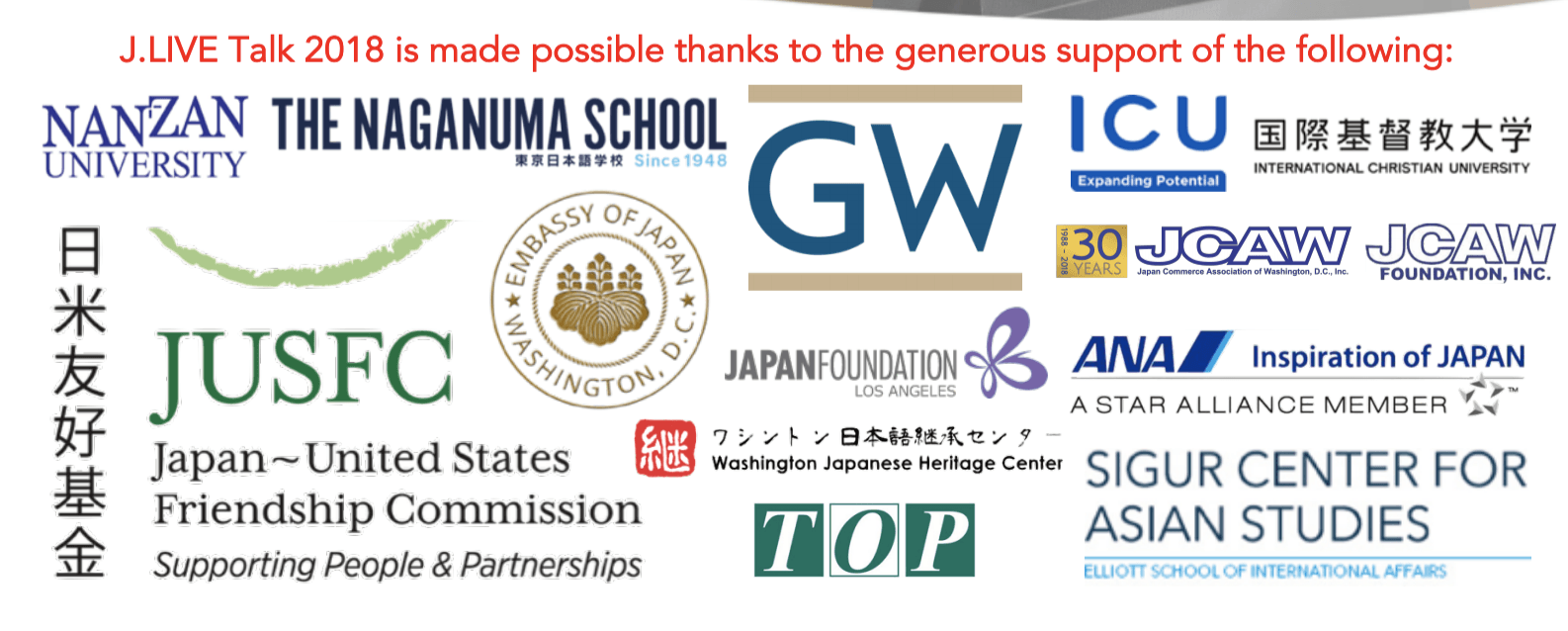
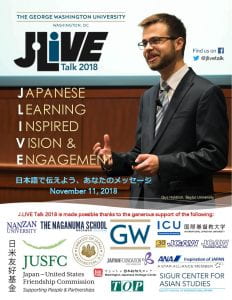
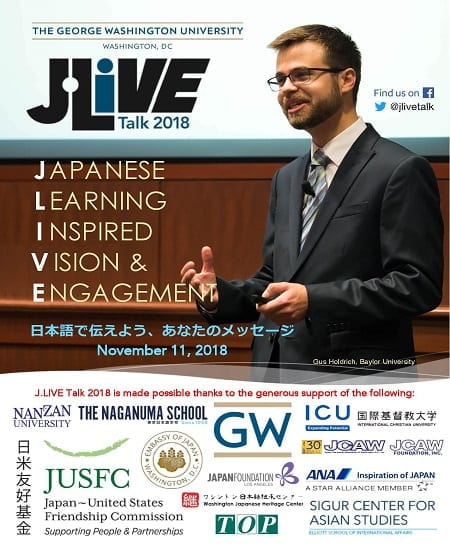
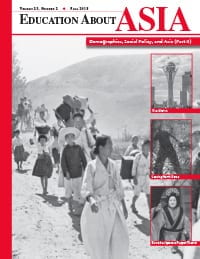
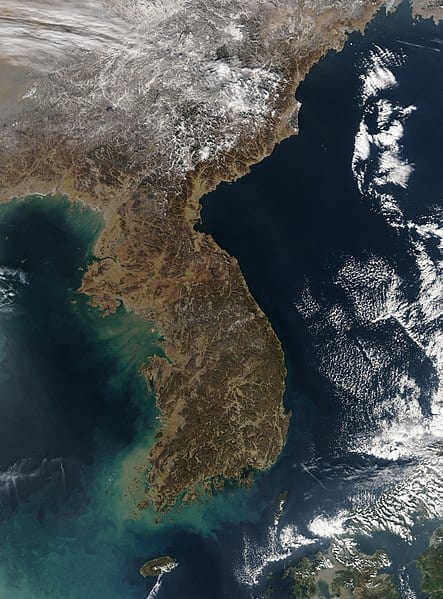


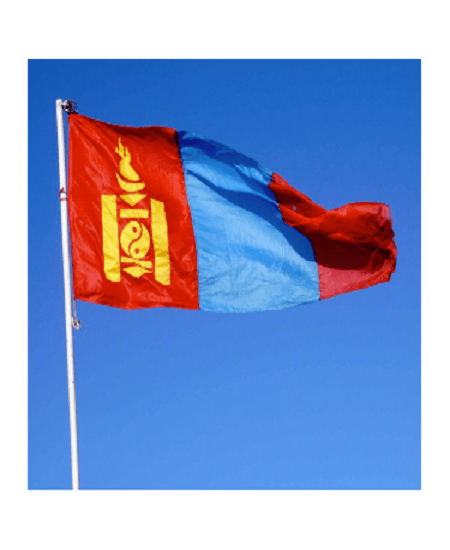

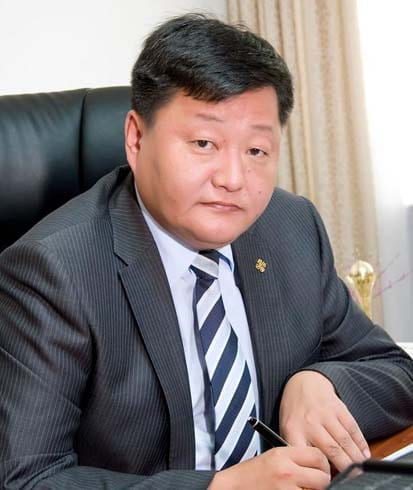



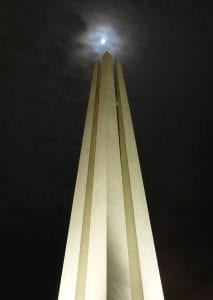


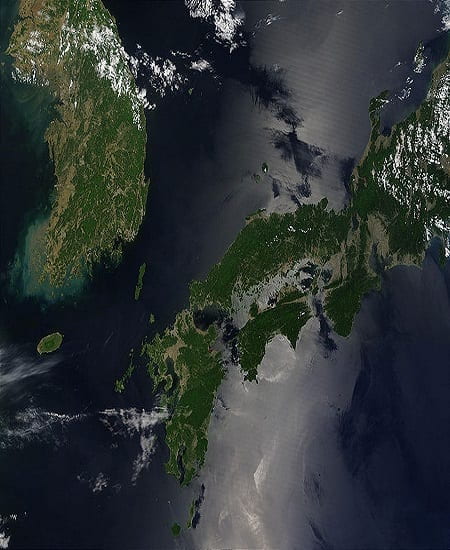


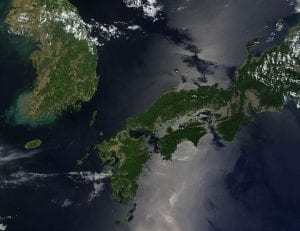

 Moderated by:
Moderated by: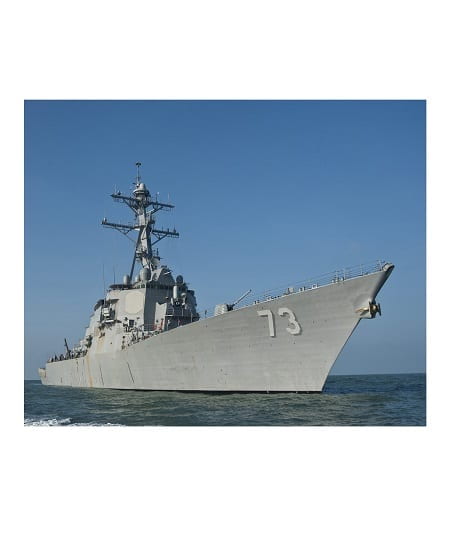
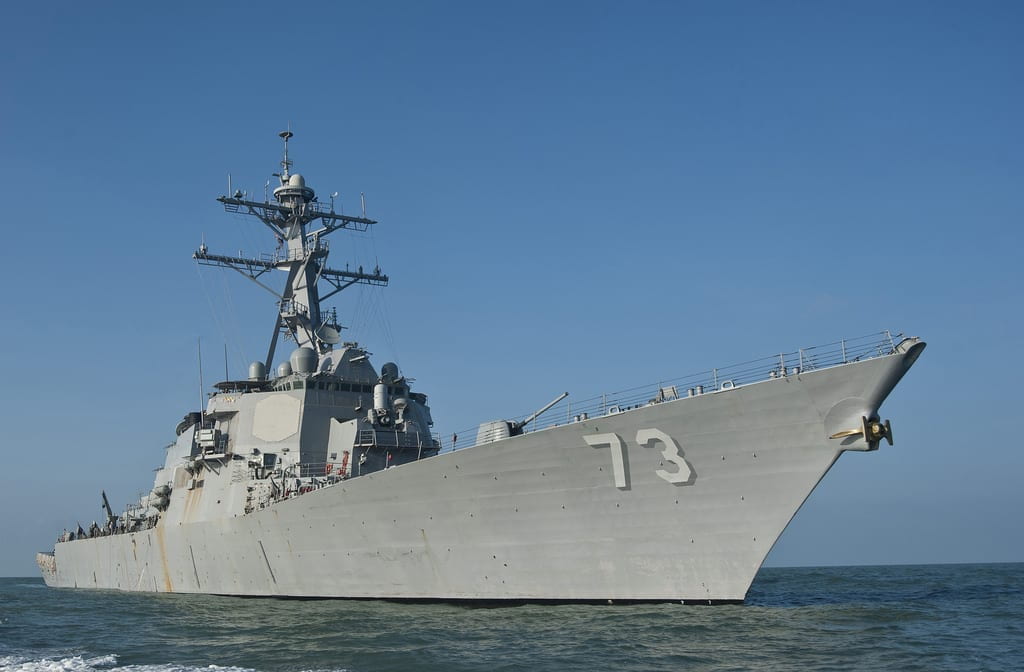
 Yehna Bendul is a sophomore in the Elliott School studying Philosophy and International Affairs with a concentration in international politics. She is currently studying Spanish but is also interested in U.S. relations with East Asia. In her position as Research Assistant with the Sigur Center, Yehna hopes to learn more about other regions of Asia and develop a more holistic understanding of the continent.
Yehna Bendul is a sophomore in the Elliott School studying Philosophy and International Affairs with a concentration in international politics. She is currently studying Spanish but is also interested in U.S. relations with East Asia. In her position as Research Assistant with the Sigur Center, Yehna hopes to learn more about other regions of Asia and develop a more holistic understanding of the continent.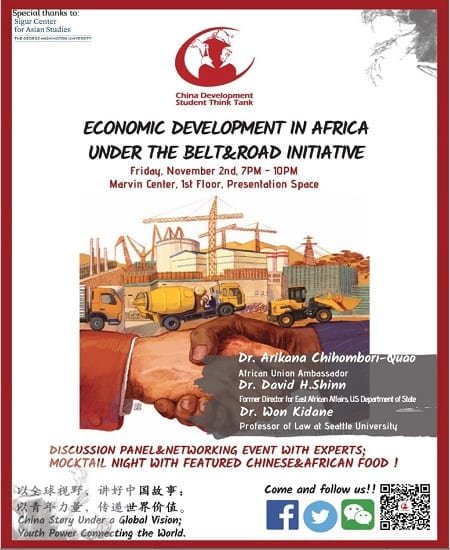
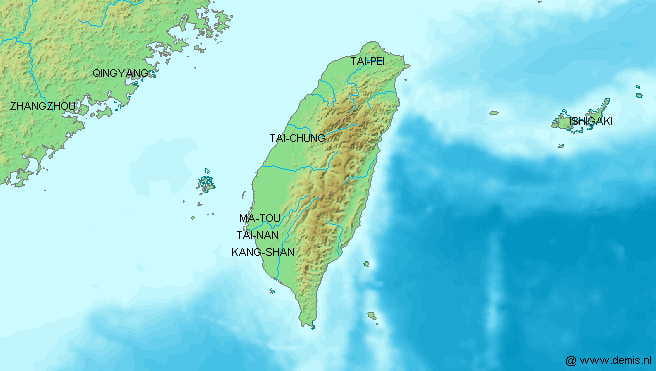
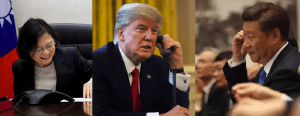
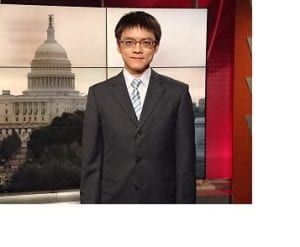 Mr. Fang Yu Chen is a PhD candidate in Political Science at Michigan State University. His research interests include authoritarian politics, political behaviors, inequality, and nationalism. Mr. Chen’s dissertation topic is “Ruling Party Institutionalization in East Asian Authoritarian Regimes,” in which he will compare former dictators’ ruling parties in Taiwan, South Korea, Indonesia, and the Philippines. Since 2014, he became the co-founder and co-editor of the website “Who Governs TW,” which aims to become a Mandarin version of the Monkey Cage. Currently, he lives in the DC area.
Mr. Fang Yu Chen is a PhD candidate in Political Science at Michigan State University. His research interests include authoritarian politics, political behaviors, inequality, and nationalism. Mr. Chen’s dissertation topic is “Ruling Party Institutionalization in East Asian Authoritarian Regimes,” in which he will compare former dictators’ ruling parties in Taiwan, South Korea, Indonesia, and the Philippines. Since 2014, he became the co-founder and co-editor of the website “Who Governs TW,” which aims to become a Mandarin version of the Monkey Cage. Currently, he lives in the DC area.